
Throughout history, different spices have been used to evoke specific feelings, taste sensations and rituals. These different spices have also played a role in defining and promoting the various religions.
Since the ancient world, spices have been highly valued for their religious offerings, burial rituals, medicines, trade and seasoning. They have been mentioned numerous times in the Bible.
Hinduism
Spices have been used in Hinduism throughout history. They are an important part of Indian culture, and many of them have a special cultural significance that explains why they are used in different ways.
The ancient religion of Hinduism is the third largest in the world, originating in India and Central Asia. It is a system of thought with religious, philosophical, and social underpinnings that controls human conduct to build karma and guide reincarnation towards the goal of moksha or spiritual freedom.
The code of behavior, known as dharma, is different for each caste and depends on one’s status in society. The goal is to live a life of piety and morality, not to pursue worldly pleasures or material rewards. If you do this, karma will build and allow you to move up in the next life until you reach moksha. This is a spiritual freedom that allows you to realize God, not just the material world.
Buddhism
Throughout history, specific spices have had a cultural significance. They are used in cooking and medicine for different purposes.
The Buddhist faith is an ancient religion that originated in India around the 5th century B.C.E. The Buddha, or Siddhartha Gautama, was the first to achieve enlightenment, which allowed him to escape the cycle of suffering and rebirth.
Buddhism is a religion that revolves around philosophy and moral teaching. One of the most important teachings of Buddhism is that you should avoid killing people or animals. This teaching is often interpreted to mean that you should be vegetarian.
Another ethical teaching of Buddhism prohibits intoxicants such as alcohol because they cloud the mind and interfere with concentration. Some Buddhists also avoid eating strong-smelling plants such as garlic, onion, chives and leeks. They believe these vegetables increase anger when eaten raw and sexual desire when cooked. They are also thought to repel gods and attract hungry ghosts and demons.
Islam
Throughout history, people have used specific spices for different purposes. These include flavoring, perfumes, odors, and medicine. For example, in the Middle Ages, Arab physicians used herbs and spices to make syrups, perfumes, and ointments.
The religious tenets of Islam are based on the One God, or Allah, and His code of life for mankind. Muslims believe in Allah as the creator of the universe and all living things, and as the Lord and Sovereign of the earth.
All Muslims worship the same Allah, as revealed in the Qur'an and by Muhammad, the last prophet of the Islamic faith. They also follow the Sunnah of Muhammad, which means his words and deeds as recorded in Hadith collections. The term "sunnah" was used by pre-Islamic Arabs to refer to tribal or common law. It later came to mean the way of life taught and practiced by the Prophet. It also encompasses the shariah, or Islamic law, that Muslims must adhere to.
Christianity
Throughout history, spices have been used in Christianity. Among the most important are cloves and cinnamon, which provide a sweet flavor and aroma.
Christian belief grew out of the teachings of Jesus of Nazareth and his many miracles. Christians believe that he was an anointed one of God the Father and fulfilled all of the laws and prophecies of the Old Testament.
While the majority of Christian followers were Jews, a significant number of them were Gentiles (non-Jews). These non-Jews were often considered to be outside the Jewish religion and had to convert to it before becoming a Christian.
As Christianity spread to other areas, it often formed unique branches. Some of these branches were formed by people who disagreed with other branches or members of their faith. Other branches were created by missionaries who spread the faith to new areas. These branches often fought against the existing local culture, which can have unforeseen consequences.
Frequently Asked Questions
What are the ten most loved spices?
Spices are used for flavouring foods and drinks. Some spices are more popular than others. There are hundreds more varieties of spices. Let's examine the ten most famous spices and learn why they're so beloved.
Cooking is incomplete without spice. It adds flavor and aroma, but doesn't increase calories. Essential vitamins and minerals are found in many spices, which can help maintain a healthy body.
Here are the ten most widely used spices.
- Cinnamon: This spice is known for improving digestion and lowering cholesterol. It can also help to prevent the flu.
- Garlic - This spice boosts immunity and fights infections. It helps lower blood pressure and aids digestion.
- Oregano – This spice increases energy levels and improves athletic performances. It fights infection and improves memory.
- Black Pepper - This spice has many antioxidants as well as anti-inflammatory qualities. It also helps reduce stress and heart disease.
- Basil-Basil is rich in vitamin K, calcium and iron. It is also known to boost metabolism and fight cancer cells.
- Salt and vinegar - These ingredients make for a delicious combination. Both vinegar and salt are effective against viruses and bacteria.
- Cloves: Clove oil is an all-natural remedy for sore gums and toothaches. It can also relieve muscle spasms or cramps.
- Ginger – Ginger has been proved to relieve nausea and morning vomiting during pregnancy. It clears congestion and helps to relieve headaches.
- Curry Powder – Curries date back to ancient times. They were made originally with coconut milk. We now use other oils or base oils like ghee.
- Turmeric is one of the oldest and most important medicinal herbs.
Use these ten favorite spices to enhance the flavour of your next meal. You may be amazed at the results!
What are the spices, condiments and seasonings Thailand uses in its dishes?
Thai cuisine is an amalgamation of influences from across Asia. Its roots lie in India, China, and Southeast Asia.
Freshness is the most important ingredient in Thai food. There is much more flavour when ingredients are picked early and cooked quickly. This is why meat, fish and vegetables, as well fruits, vegetables, herbs, seeds, and nuts are often eaten raw, then heated.
The addition of spices and sauces can add depth and aroma to dishes. Fresh basil, cilantro, mint, coriander (cilantro), lemongrass, ginger, turmeric, garlic, chillies, chilli paste, soy sauce, tamarind juice, oyster sauce, palm sugar, coconut milk, lime leaves, galangal root, curry powder, shrimp paste, fish sauce, tamarind water, rice vinegar, etc. They are frequently used.
Almond Meal vs. Almond Flour: What's the Difference?
As an almond flour alternative, an almond meal is more versatile because it can be used for baking, cooking, and even making nut-free dishes.
Almond flour can also be gluten-containing, which can make it difficult to digest. It's important to avoid gluten-free diets if your condition is celiac.
Although almond flour isn’t considered to be a “superfood”, it is rich in healthy fats and fibre.
The nutritional benefits of almond meal include magnesium and copper, iron and zinc, manganese as well as potassium and vitamin C.
Almond flour is made from almonds and contains monounsaturated fat acids. Almond oil, however, contains polyunsaturated oils. Both help to lower LDL (bad), and increase HDL levels.
Almond flour also contains antioxidants like phenolics and flavonoids. These compounds protect against oxidative damage caused by free radicals.
A study published in the Journal of Agricultural Food Chemistry found that almond flour had antioxidant activity equivalent to that of blueberries, cranberries, pomegranates, and red wine grape juice.
Almond flour can be purchased with almond milk that has been supplemented with nutrients.
Statistics
- According to a recent survey, professional chefs and many home cooks use spices; usage has only continued to grow from 2011 to now. (hospitalityinsights.ehl.edu)
- According to the McCormick Science Institute, indigenous Indian spices were cultivated as early as the 8th century BC in the gardens of Babylon. (spicecravings.com)
- According to Healthline, pink Himalayan salt is estimated to contain up to 84 minerals and trace elements, which gives the salt its special pink color. (spicecravings.com)
External Links
ncbi.nlm.nih.gov
- Development and Validation of Novel Dietary and Lifestyle Inflammation Scores - PMC
- Molecular mechanisms that curcumins have on tumorigenesis, angigenesis and metastasis. This article is from PubMed.
penzeys.com
en.wikipedia.org
amazon.com
- Amazon.com. Spend less. Smile more.
- Amazon.com : Morton & Bassett Whole Nutmeg 1.9 Oz : Nutmeg Spices And Herbs : Grocery & Gourmet Food
How To
How to store spices for cooking?
Here's how to store your cooking spices for maximum performance. First of all, we need to establish an understanding of the science behind the storage of foodstuffs.
Because spices lose their flavour when exposed to the sun, they are best kept out of reach from light. This is because oxygen reacts with organic compounds like those in spices to cause oxidation.
To prevent oxidation of spices, keep them in dark cupboards. Spices lose their flavor quickly if these conditions don't exist.
You can preserve the flavor of spices by keeping them in sealed jars, away from direct sunlight.
To create a flavorful drink, you can add spices and herbs to water. For example, you could mix 2 tablespoons of ground cinnamon in 1/2 cup of warm milk and stir it well. Add a squeeze or lemon juice to the mixture and serve immediately.
Dried herbs can be added to soups stews, casseroles pasta dishes rice dishes salads and desserts. Simply sprinkle the spice mixture evenly over the dish and sit for 5-10 minutes before serving.
You can add leftover cooked vegetables, fruits, meats and shellfish to your favorite recipes as snacks.
If you want to take advantage of the flavours of fresh herbs and spices, chop or tear them up and add them to foods while they're still hot. You can also freeze herbs and spices by placing them in ice cube trays or muffin cups and freezing them. Once frozen transfer to zip-top plastic bags or freezer bags.
Resources:
 |
What Happens If You EAT WALNUTS Everyday For 30 Days? | Dr. Steven GundryIf you’re looking for a new snack, look no further than WALNUTS! These versatile, delicious, nutritious nuts are one of the best options to snack on to improve |
 |
2 Chefs Try to Identify Spices by Taste | Sorted FoodToday we flip the script and put our chef Ben and guest chef James in the hot seat to guess some spice blends! It’s absolutely a competition and we haven’t |
 |
Why Did These Strange 1950s Inventions Kill So Many People?| Hidden Killers | Absolute HistoryDr Suzannah Lipscomb looks at the hidden dangers of the British post-war home. In the 1950s, people embraced modern design for the first time after years of |
 |
The 5 SURPRISING Vegetables You Need To Eat To STAY HEALTHY! | Dr. Steven GundryWe are taught that all vegetables are healthy for us. Dr. Gundry says that is FALSE and not all vegetables are built the same! That’s why he’s here to share |
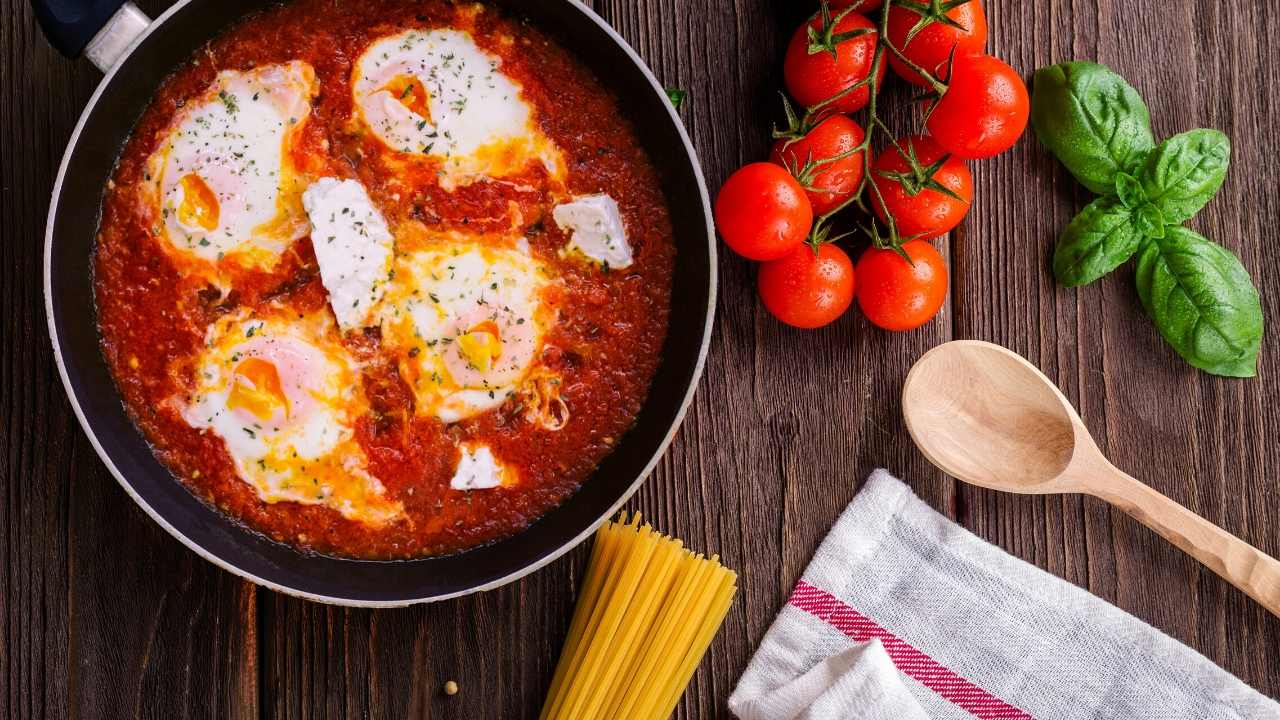 |
The SHOCKING Superfoods You Should NEVER EAT! | Dr. Steven GundrySuperfoods - we’ve all heard about them but what are they really? On today’s episode Dr. Gundry dives right into the superfoods you should and should NOT |
 |
Spice Expert Guesses Cheap vs Expensive Spices | Price Points | EpicuriousIn this episode of 'Price Points', Epicurious challenges spice expert Ethan Frisch of Burlap & Barrel to guess which one of two spices is more expensive. Ethan |
 |
Are Burger King''s Spicy Chicken Fries TOO Hot?For a limited time, Burger King has released their new Spicy Chicken Fries! Featuring a blend of spices added to their classic Chicken Fries, I'll find out how |
 |
Spice - Wikipediadefinition of spices |
 |
How Did Nutmeg Cause Wars In Indonesia? | The Spice Trail | Absolute HistoryKate Humble embarks on a journey around the fabled spice islands of eastern Indonesia in search of two spices that launched epic voyages of discovery, caused |
 |
Learn Every Single Technique For Using Spices in One DishShop the gear in this video (and more) at ProHomeCooks.com ➡️ https://prohomecooks.com/ Getting your kitchen gear from Pro Home Cooks supports more content |
 |
The SHOCKING BENEFITS of Spices On Your Health! (Take One Teaspoon Of This) | Dr. Steven GundryWe all use spices to cook, but did you know that they can be a great tool to incorporate more beneficial polyphenols into your diet? That’s right, with just |
 |
Poultry Seasoning For TurkeyIf you're looking to spice up your turkey meals, you should consider putting poultry seasoning on your bird. Not only is it a great way to add some.. |
 |
Delicious Seasonings to Add Flavor to Your DishesIf you're looking for delicious seasonings to add to your dishes, you're in the right place. There are many options out there, from chili powder to.. |
 |
How to Add Spices to Mac and CheeseThere are a number of spices that you may want to try out when cooking mac and cheese. Some of these ingredients include red peppers, oregano,.. |
 |
Chaat Masala and Garam MasalaChaat masala is a type of spice mix that is used to flavor chaat. It is made from several spices, such as cumin, dried ginger, coriander, asafoetida, |
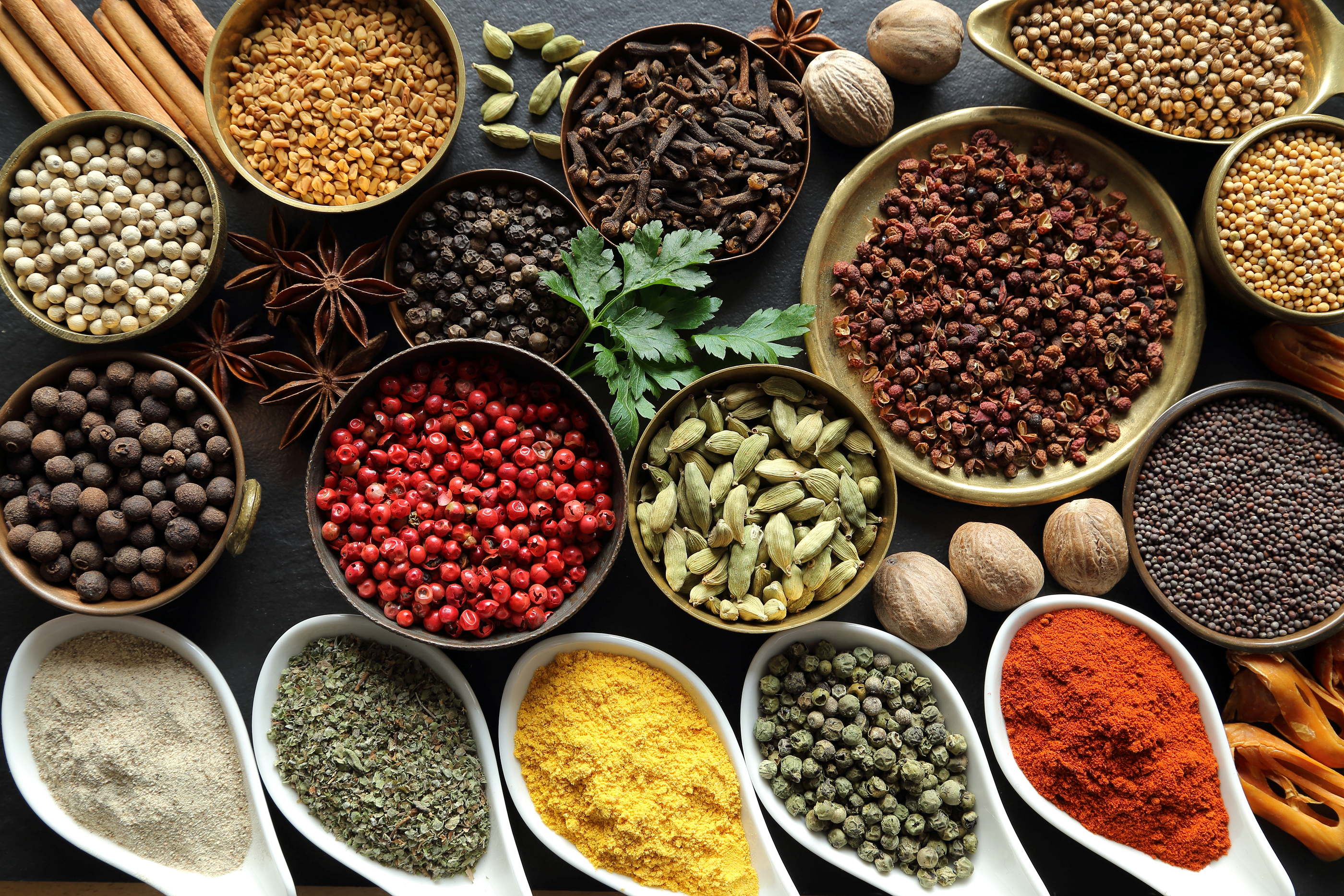 |
27 Essential spiecs you need to knowImportant spices in cooking |
 |
No Salt Seasoning BlendsIf you want to make the perfect grilled chicken or steak, it's time to try a no salt seasoning blend. It's the best way to add flavor to any dish.. |
 |
Coriander Ground Vs Coriander WholeCoriander is one of the most popular herbs used for cooking and can be either whole or ground. Its taste is very mellow, and is perfect for adding a.. |
 |
Homemade Blackening SeasoningMaking your own homemade blackening seasoning is a great way to add flavor and freshness to your dishes. This spice mix can be used in a variety of.. |
 |
Sweet Potato RavioliSweet potato ravioli is a popular pasta dish that is very easy to make. The recipe uses sweet potato as the filling and makes a light and filling.. |
 |
Greek SeasoningGreek seasoning is a common spice used in many types of dishes. For example, it can be used as a dry rub on chicken wings before baking, or it can be |
 |
AbgooshtAbgoosht is a hearty Persian soup that is made from mutton. It is a traditional stew that is thickened with chickpeas. It is also known as Dizi... |
 |
Greek Cabbage RollsOne of the most popular dishes you can find on the menu at Greek restaurants is cabbage rolls. They are a great option when you're on the go and need |
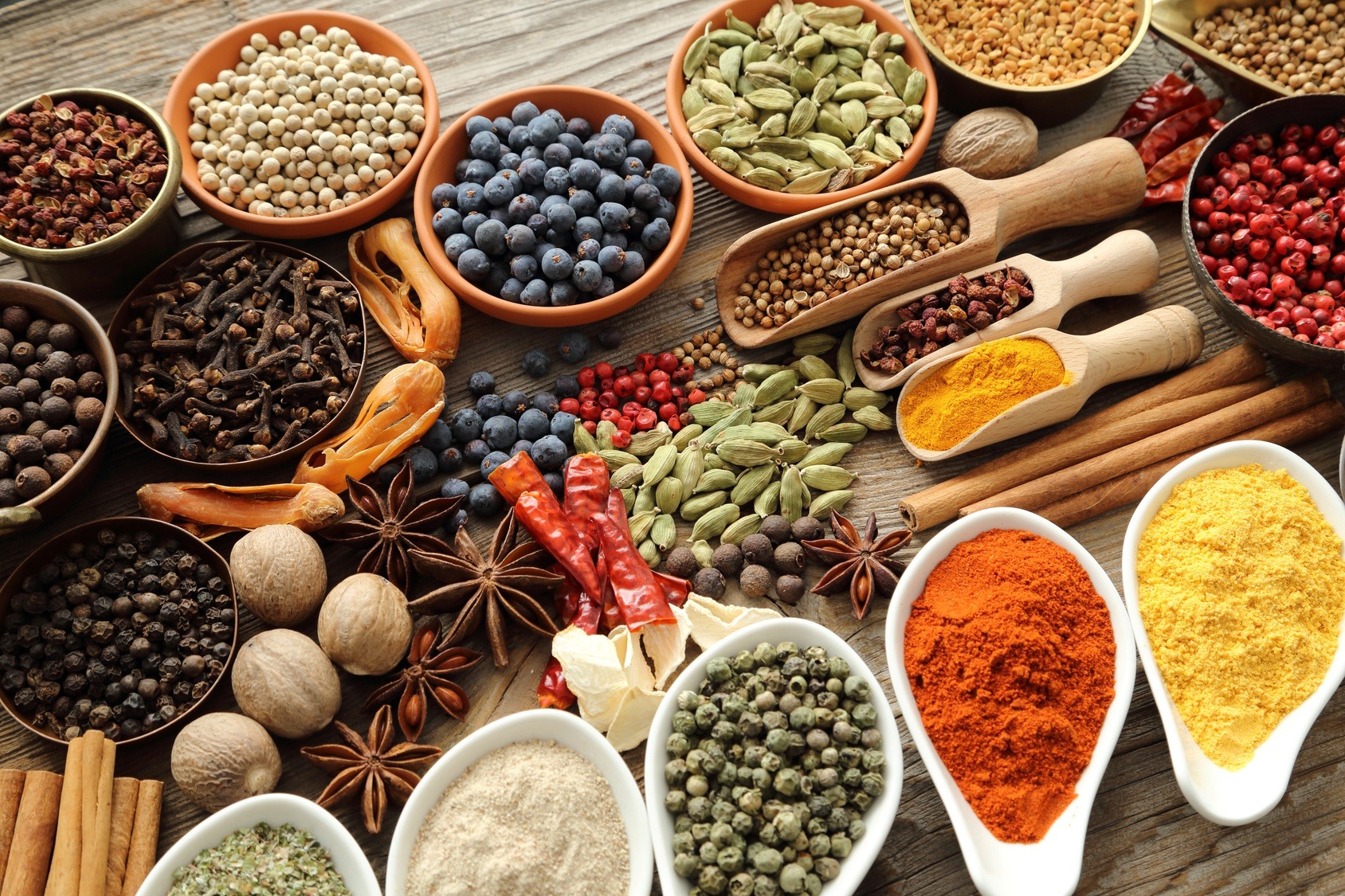 |
Your Herbs and Spices Guides & BlogsHerbs, spice & everything nice, these blog and articles explain the many uses of spices, including spices for weight loss, spices for brewing, and how to store |
 |
Mexican Cauliflower Rice RecipeIf you have been looking for a healthy meal option, you can try making Mexican cauliflower rice. This delicious recipe combines a blend of vegetables, |
 |
A Guide to Indonesian FoodIndonesia is an archipelago country and its cuisine is a mix of regional culinary traditions. Its dishes include sweet and savory dishes, based on.. |
 |
How to Make Homemade Spaghetti SauceSpaghetti is a very popular Italian dish that is made from durum wheat semolina. It is also often enriched with vitamins and minerals. Some people.. |
 |
How to Prepare a Chicken on Skewer RecipeIf you're looking to cook up a tasty meal for the family, why not try out a chicken on skewer recipe? This is a fast, easy dish that your whole.. |
 |
Powdered SpicesThe ingredients for powdered spices are usually either individually roasted or are a combination of a variety of different spices. These include.. |
 |
Air Fryer Chicken ParmesanIf you want to find a delicious and quick way to cook your favorite chicken dishes, try using an air fryer. The results are fantastic and are sure to |
 |
What Type of Cardamom Should You Use in Your Cooking?Cardamom is an ancient spice, used for centuries in the kitchen. When you're using cardamom in your cooking, there are a few things you should know... |
/spices-5689d3013df78ccc1533efad.jpg) |
The Chopping Block Cooking Blog | spicesspices | Visit our blog for recipes, cooking tips and techniques as well as our staff's favorite eats and travel adventures. |
 |
Lasagna SpicesFor people who enjoy lasagna, there are a variety of spices to choose from. Some of the spices include paprika, cayenne pepper, thyme, and fresh.. |
 |
Italian Dressing RecipesIf you are looking for a new way to dress your favorite dishes, you may want to try one of the many Italian dressing recipes out there. These.. |
 |
VIETNAM BUSINESS NEWS OCTOBER 13 - PepperHCMC economy gains strong growth in Jan-SeptGross regional domestic product (GRDP) of HCMC between January and September reached nearly VND1,100 trillion in |
 |
SALMONELA - EU strengthens measures against brazilian pepperAt the beginning of October the European Spice Association inssued a letter direcyed to it members,stating that EU Commision will strengthen the rules on |
 |
Cloves Market Latest NewsRoyal Golden's Cloves Market Latest NewsBy Parsram DhiraniMadagascar - With weeks of slow progression of incoming new crop from field, goods are now |
 |
Important Report - Brazilian Pepper ContractsSince the middle of November when the rainy season finaly came to Brazil, bad weather and heavy rains are threatening Pepper production areas disrupting |
 |
BRAZIL - PEPPER PRODUCTION SUFFERING BAD WEATHERPARTIALLY FLOADED PEPPER PLANTATION IN LINHARES - ESThe heavy and constant rains that have been happening non-stop for more than a month are hampering the |
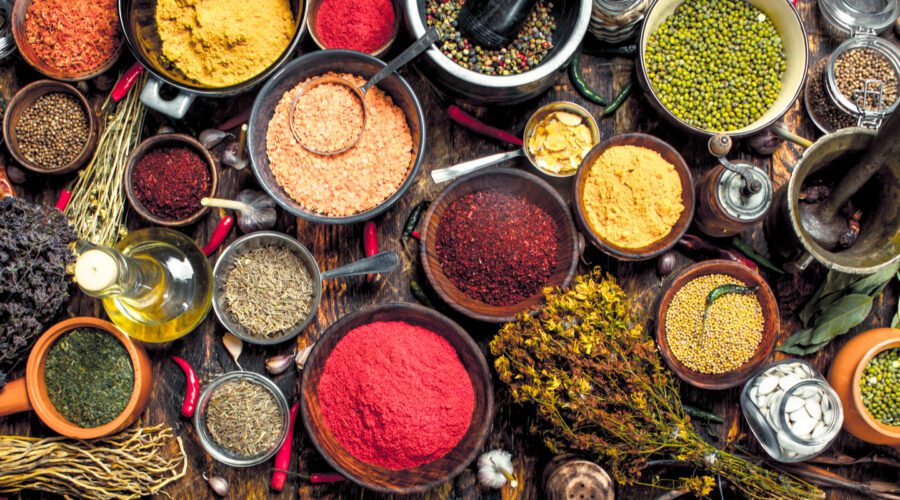 |
Spice Talk - Spice Station - New Ideas for Cooking with Spices!This spice blog writes about Indian fenugreek, Canadian coriander, Egyptian dill weed, Syrian Aleppo pepper, Granada nutmeg, & more from around the world. |
 |
CARDAMOM - Guatemala in line to export around 55,000 MT for the 22-23 SeasonPlease read the short report/comment we received of an operator ofCardamom in GuatemalaHello friends, looking forward to seeing you again next week, wanted to |
 |
UPDATE - VIETNAM PEPPER PRICES FEB 22February 22, 2023|Black Pepper Offers, Vietnam Market Update This week, China is buying slowly, people expect the price will come down a little bit but today, |
 |
Vietnam Pepper exports hit 129 million USD in first two monthsVietnam exported over 41,000 tonnes of pepper worth 129 million USD in the first two months of this year, up 35% in volume, but down 7.4% in value over the |
 |
GLOBAL MARKET OVERVIEW GARLICMarch 2023FreshPlaza.comThe global garlic market is experiencing mixed fortunes, according to recent reports from around the world. In the Netherlands, demand |
 |
Vietnam Pepper market update 13th March 2023 – Week 10.- Pepper price has had an impressive increase in 2023 with an increase from 61,000vnd from January 1, 2023 to 67.000vnd until March 12, 2023, corresponding to |
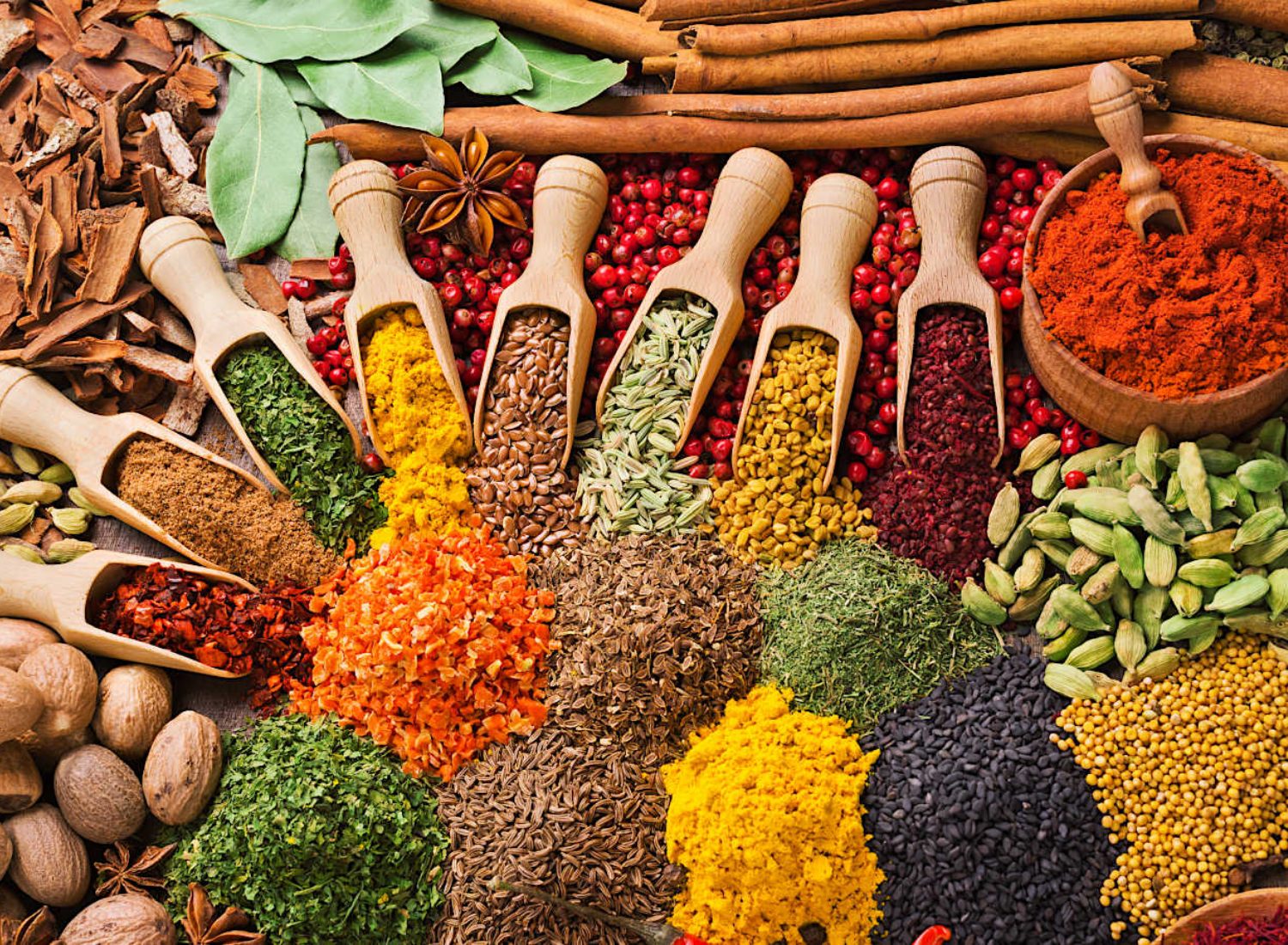 |
Blog | Herbs Spices and Seasonings | High Quality | World of SpiceWorld of Spice is your online store for a massive range of High Quality Herbs Spices and Seasonings. Wholesale, Foodservice and Catering High Quality Herbs |
.png)





